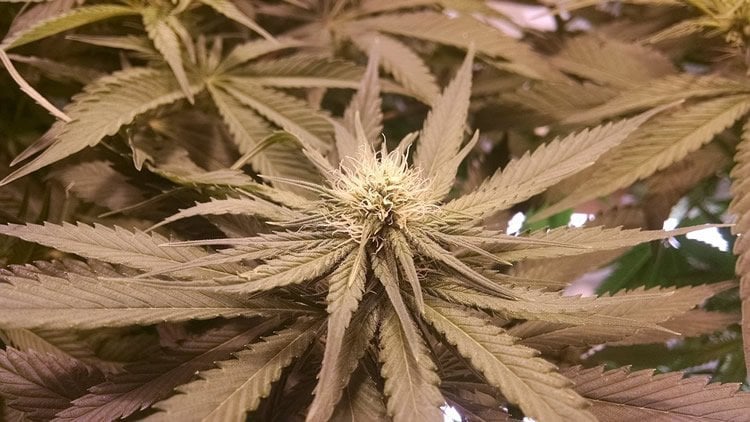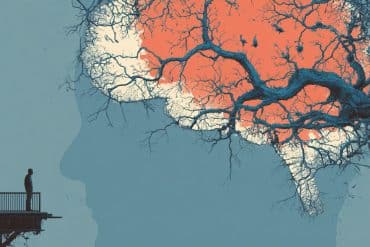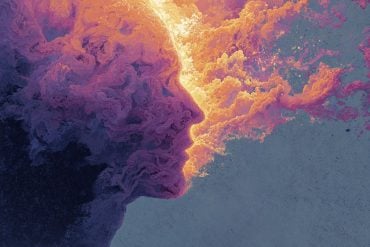Summary: More than 80% of parents reported significant or moderate improvements in their child’s ASD symptoms following medical cannabis treatment, a new study reports.
Source: Ben-Gurion University.
In a new study of patients with autism who are 18 years old and under, researchers from Ben-Gurion University of the Negev (BGU) and Soroka University Medical Center report that cannabis as a treatment for autism spectrum disorders appears to be a well-tolerated, safe and effective option to relieve symptoms including seizures, tics, depression, restlessness, and rage attacks.
In the study published in Scientific Reports, “Overall, more than 80 percent of the parents reported significant or moderate improvement in their child,” according to Lihi Bar-Lev Schleider, of the BGU-Soroka Clinical Cannabis Research Institute.
Autistic Spectrum Disorder (ASD) is an extensive developmental disorder that is expressed in almost all dimensions of the child’s development. It is now common to refer to this disorder as a wide range of Pervasive Developmental Disorders (PDD) in which there are various manifestations and symptoms.
According to BGU’s Dr. Gal Meiri of the Negev Autism Center, “We analyzed the data prospectively collected as part of the treatment program of 188 ASD patients treated with medical cannabis between 2015 and 2017. The treatment in majority of the patients was based on cannabis oil containing 30 percent cannabidiol oil (CBD) and 1.5 percent tetrahydrocannabinol (THC). Symptoms, patient global assessment and side effects at six months were primary outcomes of interest and were assessed by structured questionnaires.”
Overall, after six months of treatment, 30 percent of patients reported a significant improvement, 53.7 percent reported moderate improvement, and only 15 percent had slight or no change.
Quality of life, mood and ability to perform activities of daily living were assessed prior to treatment and at six months. Good quality of life was reported by 31.3 percent of patients prior to treatment initiation. At six months, good quality of life more than doubled to 66.8 percent. Positive mood was reported as 42 percent before treatment and 63.5 after six months.

The ability to dress and shower independently improved significantly from cannabis treatment. Only a quarter (26.4 percent) reported no difficulty prior to the treatment while 42.9 percent improved their ability to dress and shower independently at six months.
Cannabis oil medication also significantly improved sleep and concentration. Good sleep and concentration were reported by 3.3 percent and zero percent respectively at the outset vs. 24.7 percent and 14 percent during an active treatment.
“While this study suggest that cannabis treatment is safe and can improve ASD symptoms and improve ASD patients’ quality of life, we believe that double blind placebo-controlled trials are crucial for a better understanding of the cannabis effect on ASD patients,” says Dr. Victor Novack, of the BGU-Soroka Clinical Cannabis Research Institute.
Funding: Tikun Olam Ltd funded this study.
Source: Andrew Lavin – Ben-Gurion University
Publisher: Organized by NeuroscienceNews.com.
Image Source: NeuroscienceNews.com image is in the public domain.
Original Research: Open access research for “Real life Experience of Medical Cannabis Treatment in Autism: Analysis of Safety and Efficacy” by Lihi Bar-Lev Schleider, Raphael Mechoulam, Naama Saban, Gal Meiri & Victor Novack in Scientific Reports. Published January 17 2019.
doi:10.1038/s41598-018-37570-y
[cbtabs][cbtab title=”MLA”]Ben-Gurion University”Medical Marijuana Relieves Symptoms in Children with Autism.” NeuroscienceNews. NeuroscienceNews, 31 January 2019.
<https://neurosciencenews.com/medical-marijuana-autism-10669/>.[/cbtab][cbtab title=”APA”]Ben-Gurion University(2019, January 31). Medical Marijuana Relieves Symptoms in Children with Autism. NeuroscienceNews. Retrieved January 31, 2019 from https://neurosciencenews.com/medical-marijuana-autism-10669/[/cbtab][cbtab title=”Chicago”]Ben-Gurion University”Medical Marijuana Relieves Symptoms in Children with Autism.” https://neurosciencenews.com/medical-marijuana-autism-10669/ (accessed January 31, 2019).[/cbtab][/cbtabs]
Abstract
Real life Experience of Medical Cannabis Treatment in Autism: Analysis of Safety and Efficacy
There has been a dramatic increase in the number of children diagnosed with autism spectrum disorders (ASD) worldwide. Recently anecdotal evidence of possible therapeutic effects of cannabis products has emerged. The aim of this study is to characterize the epidemiology of ASD patients receiving medical cannabis treatment and to describe its safety and efficacy. We analysed the data prospectively collected as part of the treatment program of 188 ASD patients treated with medical cannabis between 2015 and 2017. The treatment in majority of the patients was based on cannabis oil containing 30% CBD and 1.5% THC. Symptoms inventory, patient global assessment and side effects at 6 months were primary outcomes of interest and were assessed by structured questionnaires. After six months of treatment 82.4% of patients (155) were in active treatment and 60.0% (93) have been assessed; 28 patients (30.1%) reported a significant improvement, 50 (53.7%) moderate, 6 (6.4%) slight and 8 (8.6%) had no change in their condition. Twenty-three patients (25.2%) experienced at least one side effect; the most common was restlessness (6.6%). Cannabis in ASD patients appears to be well tolerated, safe and effective option to relieve symptoms associated with ASD.






